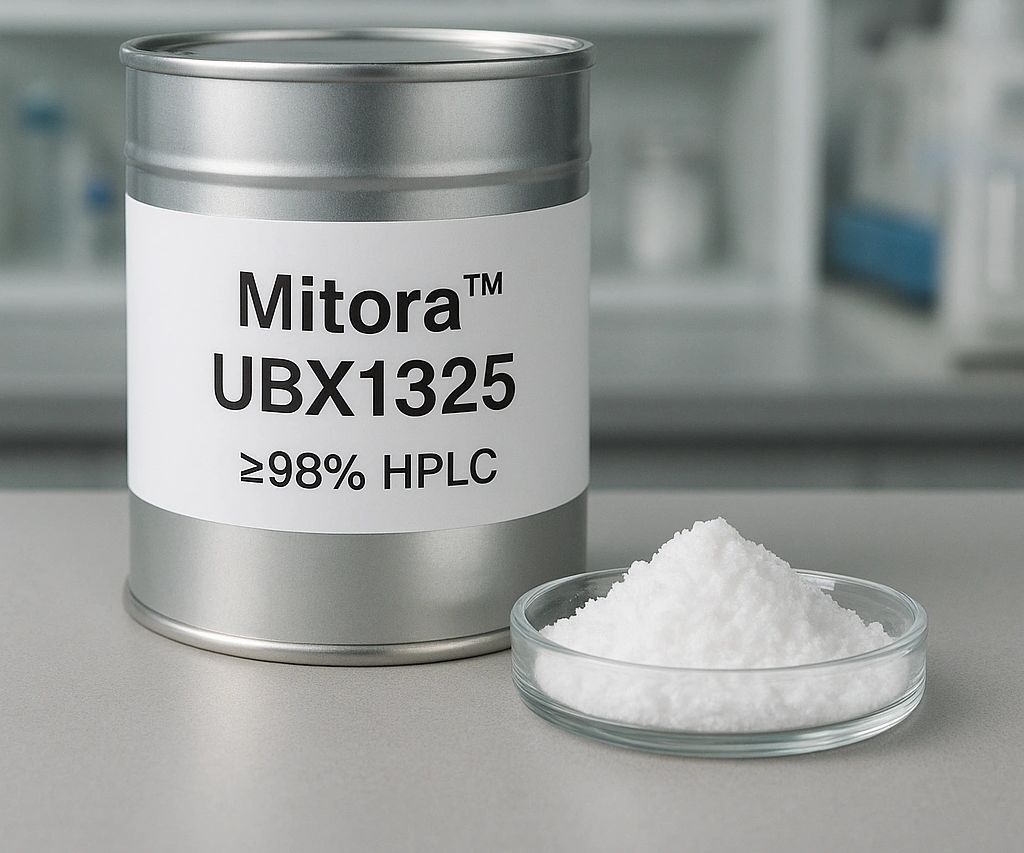
Accumulating experimental evidence suggests Fisetin in combination with Dasatinib-Quercetin impacts vital oncogenic pathways to restrain tumor growth and proposes a viable therapeutic direction
Navitoclax (ABT-263): A BCL-2 Inhibitor in Cancer Therapy
ABT-263’s pharmacology focuses on blocking antiapoptotic BCL-2 activity to promote cell death in tumors that exploit BCL-2 overexpression for persistence
UBX1325 Research Update: Experimental Evidence from Preclinical Models
UBX1325’s preclinical program focuses on defining its modes of action and therapeutic index as early findings point to robust anticancer effects
Fisetin: Prospects for Counteracting Drug Resistance Pathways
Laboratory investigations point to Fisetin’s ability to modulate resistance-related signaling nodes, improving responses to anticancer therapies
- Moreover, studies indicate Fisetin can downregulate resistance-associated proteins and effector enzymes to blunt adaptive survival responses
- Preclinical assays have shown Fisetin enhances susceptibility of tumor cells to multiple anticancer agents and reduces resistant phenotypes
Consequently, Fisetin represents a promising adjunct that may improve treatment responses by targeting resistance mechanisms and enhancing therapeutic outcomes
Fisetin and Dasatinib-Quercetin Collaboration: Effects on Cancer Cell Survival
Experimental data indicate Fisetin and the Dasatinib-Quercetin combination act synergistically to reduce proliferation and viability of malignant cells
Continued experimental work should define the signaling networks and pharmacologic parameters that enable maximal synergistic benefit
Combining Natural Polyphenols, BCL-2 Antagonists and UBX1325 as an Anticancer Strategy
A combinatorial framework incorporating Fisetin, Navitoclax and UBX1325 as complementary modalities aspires to broaden efficacy relative to single-agent therapy
- Fisetin is noted for anti-inflammatory and pro-apoptotic activity across multiple cancer models and may complement targeted drugs
- BCL-2 antagonists like Navitoclax seek to remove antiapoptotic restraints and potentiate combination efficacy
- UBX1325 contributes distinct antitumor mechanisms that can enhance overall regimen potency
.png/:/cr=t:28.71%25)
The convergence of anti-inflammatory, pro-apoptotic and antiproliferative activities supports combined application to maximize therapeutic outcomes
Mechanistic Basis for Fisetin’s Anticancer Effects
Fisetin influences multiple signaling cascades linked to proliferation, apoptosis, angiogenesis and metastatic processes, making it a versatile anticancer candidate
The complex molecular landscape by which Fisetin acts remains an active area of research but holds significant translational potential for derivative therapies
Synergistic Potential of Dasatinib and Quercetin for Cancer Therapy
Preclinical observations show the Dasatinib-Quercetin duo increases apoptosis, reduces angiogenesis and limits metastatic traits through coordinated pathway modulation
- Mechanistic investigations aim to identify the key pathways and gene programs mediating the combination’s enhanced effects
- Clinical trials are being designed or initiated to evaluate safety and efficacy of Dasatinib-Quercetin combinations in selected malignancies
- Pairing targeted kinase blockers with flavonoid modulators marks an innovative path for combinatorial oncology approaches
A Comprehensive Review of Preclinical Data on Fisetin, Dasatinib-Quercetin, and UBX1325

Comprehensive analysis of the preclinical literature reveals consistent themes of pathway targeting, efficacy signals and opportunities for synergistic combinations among these compounds
- Laboratory evaluations examine the balance of enhanced efficacy and safety when Fisetin is combined with chemotherapeutics and targeted drugs Systematic preclinical testing is required to validate that Fisetin-containing regimens improve response rates without unacceptable toxicity Systematic preclinical testing is required to validate that Fisetin-containing regimens improve response rates without unacceptable toxicity
- Data indicate Fisetin exerts multipronged anticancer effects that warrant translational exploration
- Dasatinib-Quercetin pairing yields synergistic antitumor responses by concurrently targeting multiple signaling networks involved in cancer progression
- The investigational profile of UBX1325 aligns with its candidacy for continued experimental evaluation and combinatorial exploration
Novel Regimens Designed to Surmount Navitoclax Resistance
Combining Navitoclax with complementary drugs that affect other oncogenic routes is a leading strategy to mitigate resistance and enhance therapeutic durability
Investigating the Therapeutic Index of Fisetin Combinations in Models
Thorough preclinical characterization will determine whether Fisetin co-therapies offer favorable risk-benefit profiles for clinical translation